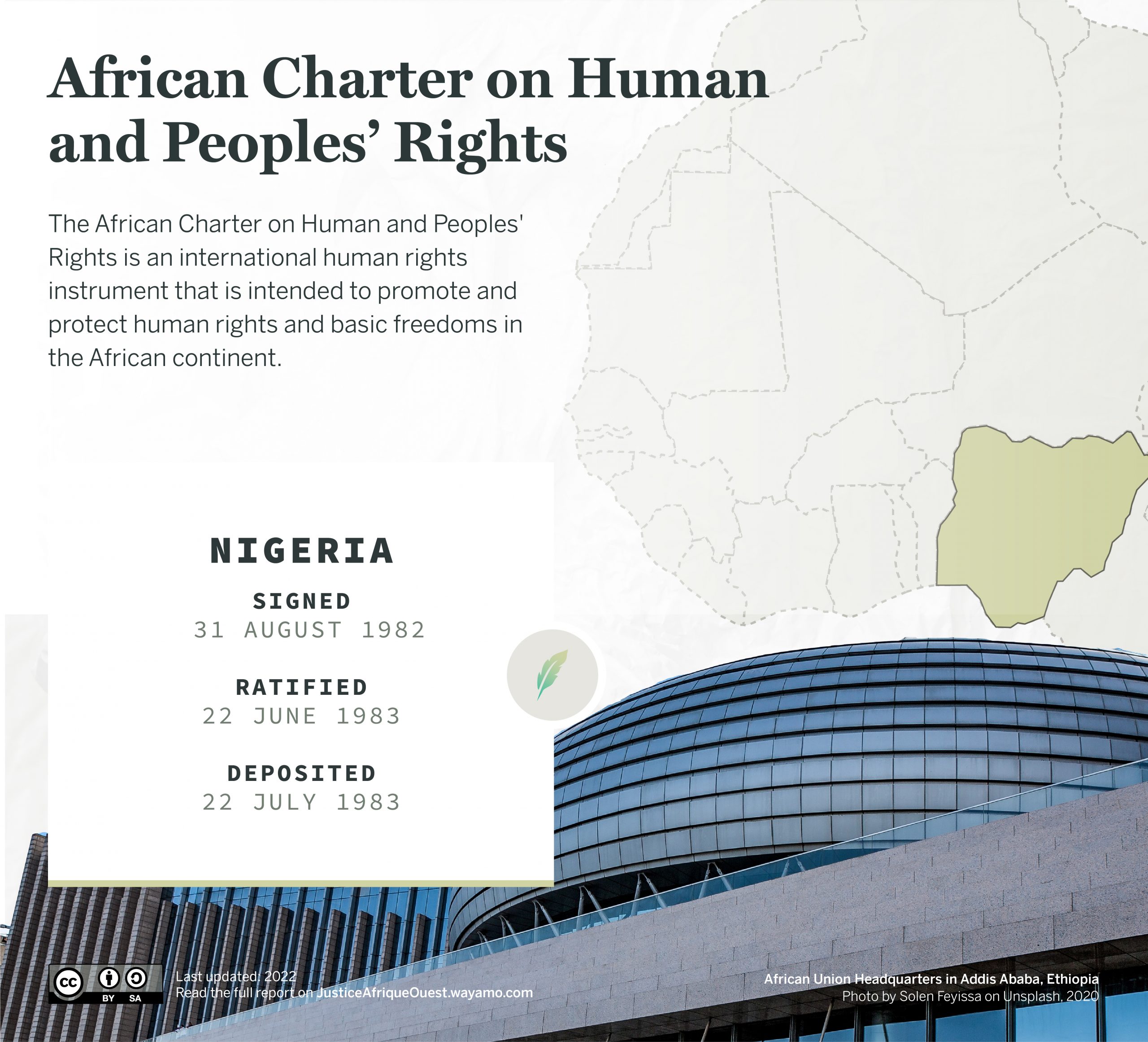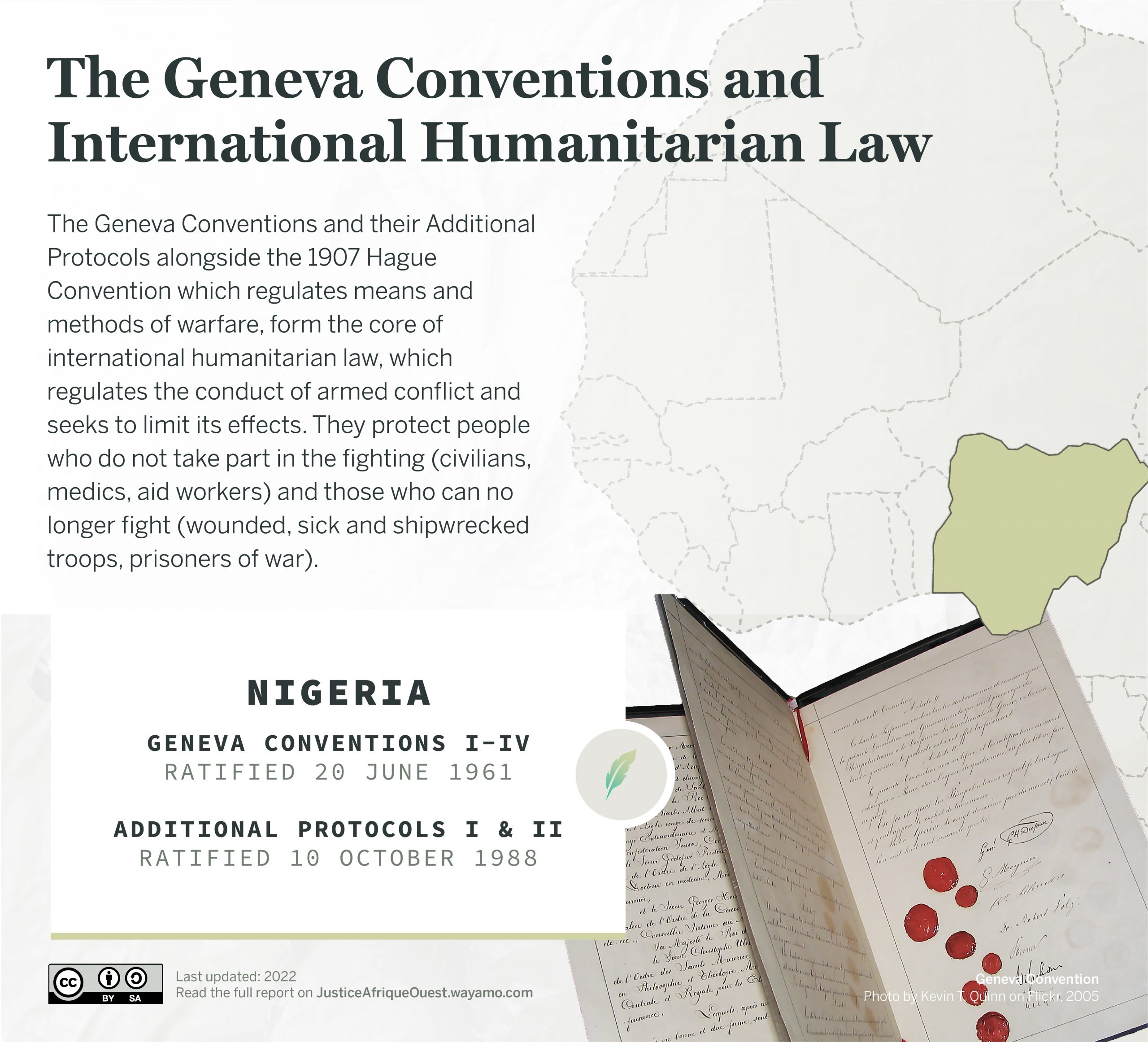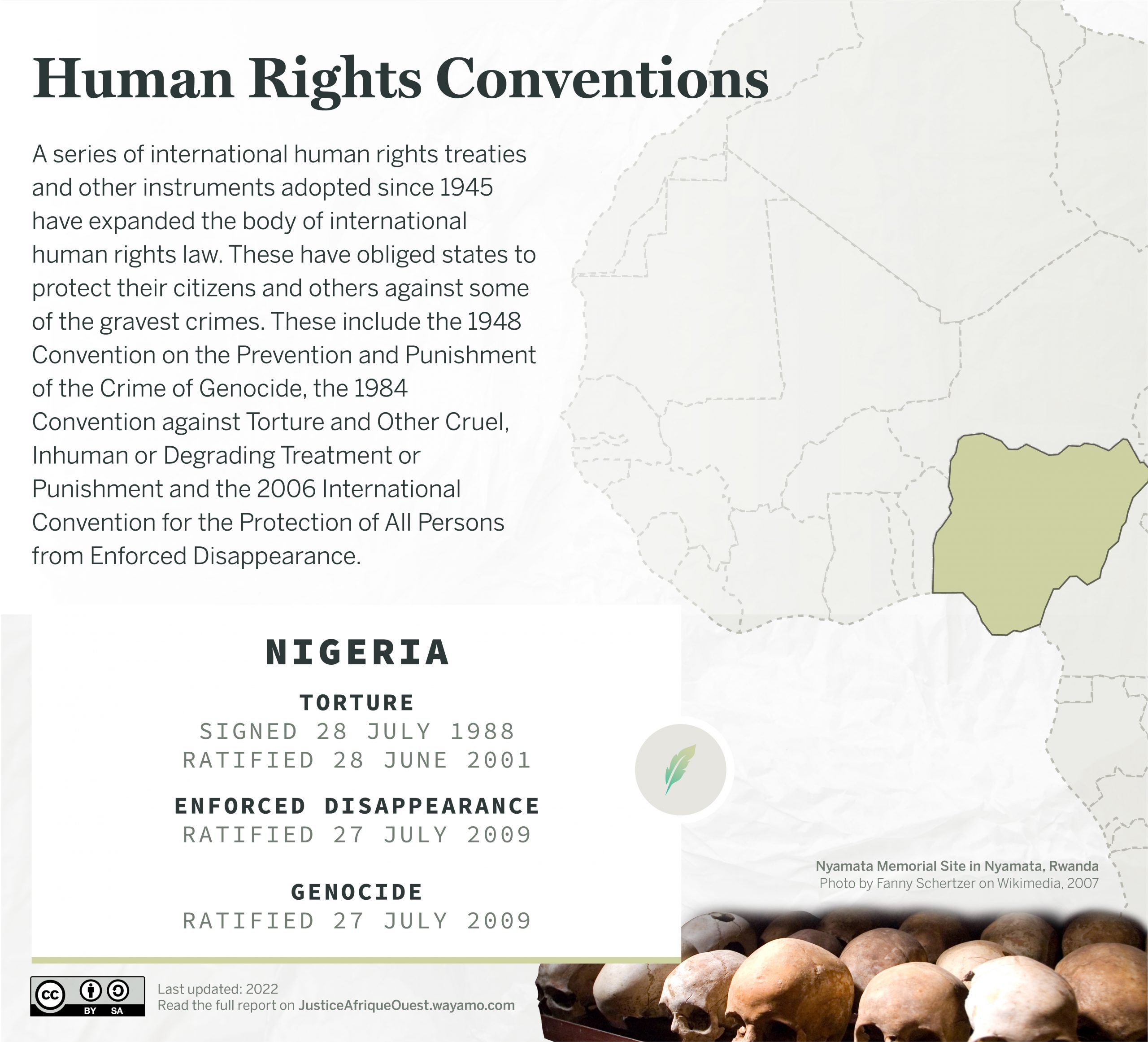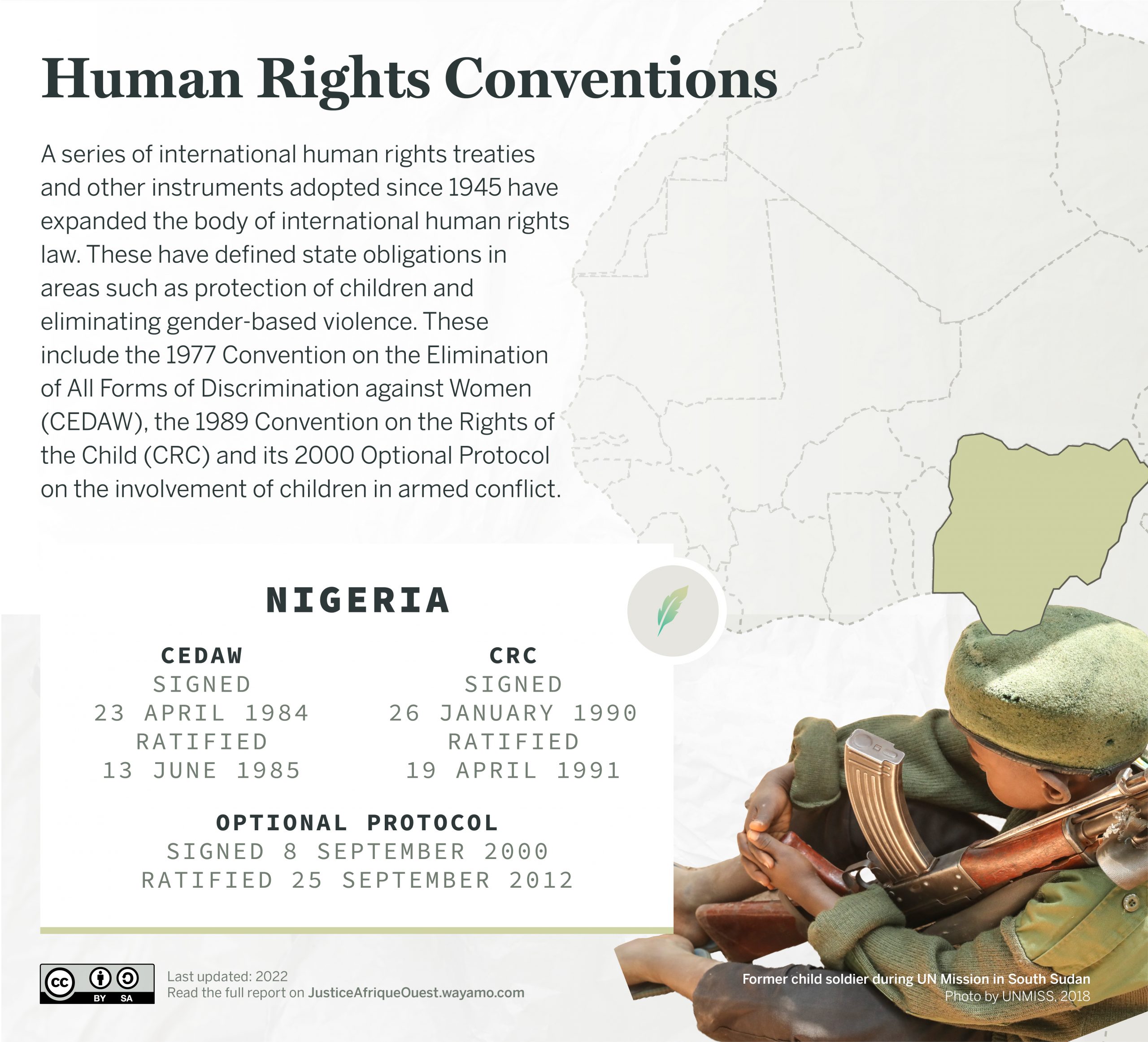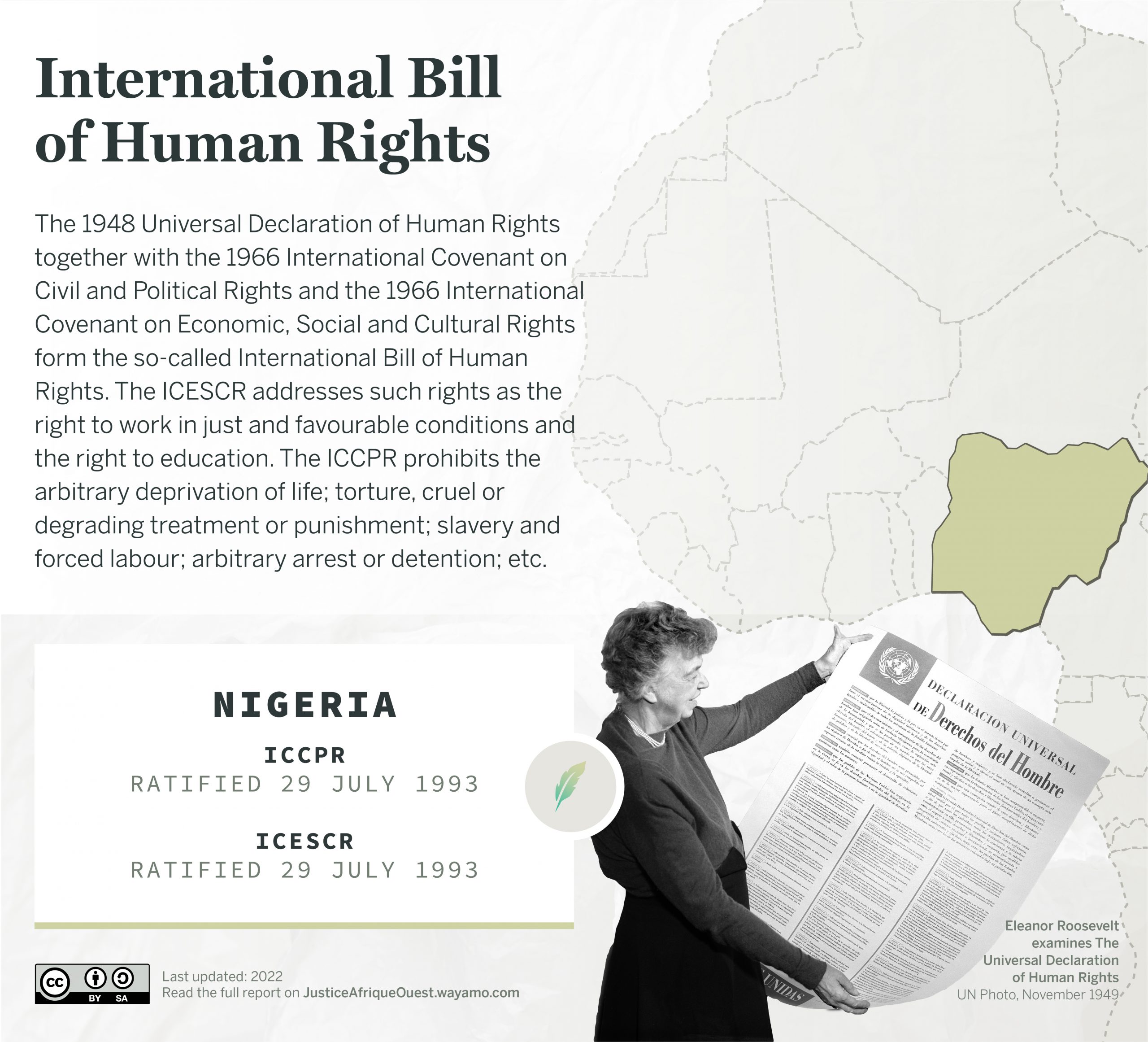Abubakar Shekau takes over leadership of Boko Haram
Following the death of its founder Mohammed Yusuf in 2009, his deputy Abubakar Shekau takes over and Boko Haram evolves into a militant movement of transnational proportions with factions allegedly affiliated with ISIS and al-Qaeda. Boko Haram launches military operations targeting military, police and civilian targets.
ICC preliminary examination
The ICC Office of the Prosecutor (OTP) opens a preliminary examination into the situation in Nigeria after receiving communications of alleged atrocity crimes.
Domestic legal framework for terrorism offences established
The Nigerian National Assembly passes the Terrorism (Prevention and Prohibition) Bill in May 2011 establishing a framework to try terrorism offences in Nigeria. President Jonathan signs the bill into law the following month.
Military Task Force sent to the north-east
President Jonathan sends a Special Military Joint Task Force (SMJTF) comprising military, police, immigration and intelligence personnel to the north-east of Nigeria to address the security threat posed by Boko Haram.
State of emergency declared in selected federal states
President Jonathan declares a state of emergency in selected local government areas in Borno, Plateau, Yobe and Niger states.
Amnesty committee established
President Jonathan inaugurates the Committee on Dialogue and Peaceful Resolution of Security Challenges in the North, mandated to develop a framework for the granting of amnesties for Boko Haram members.
Second State of Emergency
A second state of emergency is declared, this time for the three States of Borno, Yobe and Adamawa. This declaration leads to a surge of security forces in these states and the deployment of special forces.
Chibok girls abducted by Boko Haram
The abduction, one of many by Boko Haram militants, brought the conflict to international prominence and sparked one of the biggest global social media campaigns, with tweeters using the hashtag #BringBackOurGirls. According to Amnesty International more than 100 girls remain missing as of April 2021.
President Muhammadu Buhari elected as President of Nigeria replacing Goodluck Jonathan
Special Board of Inquiry established to investigate alleged violations of human rights by the Nigerian Armed Forces
The Chief of Army Staff of the Nigerian Armed Forces convenes the Special Board of Inquiry (SBI) with the mandate to investigate alleged violations of human rights by the Nigerian Armed Forces. The inquiry finds no evidence of arbitrary arrests or extra judicial executions of detainees in any of the documents reviewed.
PIP established to examine alleged acts of human rights and humanitarian law violations by military personnel
Acting President Yemi Osinbajo sets up the Presidential Investigation Panel (PIP), a judicial commission to look into alleged acts of human rights and humanitarian law violations by military personnel. The PIP's seven members submit the final report in February 2018, which has not been made public.
First round of trials against Boko Haram suspects held
The Nigerian government holds the first criminal trials against Boko Haram suspects. The trials are criticised for failure to observe fair trial and due process rules.
Second round of trials against Boko Haram suspects held at Wawa Cantonment Kainji, Niger State
Military violations report
The Presidential Investigation Panel (PIP) of seven members submits its final report in February 2018. However, the report has not been made public.
Third round of trials held held at Wawa Cantonment Kainji, Niger State
ICC Prosecutor concludes preliminary examination process
The ICC prosecutor, Fatou Bensouda, concludes the preliminary examination of the situation in Nigeria and announces that the statutory criteria for opening an investigation by the ICC have been met.
Audio tape from ISWAP leader confirms Shekau's death at the hands of Islamic State
ISWAP leader Abu Musab Al-Barnawi alleges Shekau's death in Sambisa forest came in response to orders from the new leader of Islamic State, Abu Ibrahim al-Hashimi al-Qurashi.
Nigerian military confirms Shekau's death
Nigeria's Chief of Defence Staff General Lucky Irabor confirms Shekau's death.



